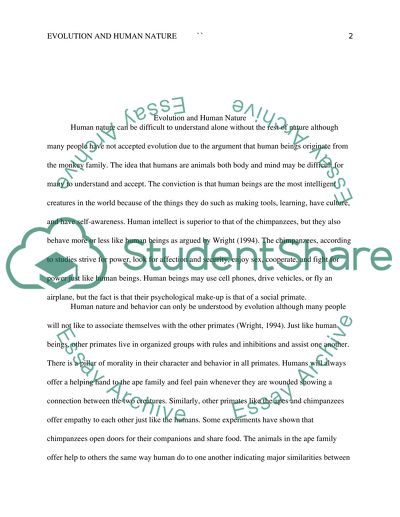Cite this document
(“Evolution and Human Nature Research Paper Example | Topics and Well Written Essays - 2250 words”, n.d.)
Retrieved from https://studentshare.org/psychology/1695499-evolution-and-human-nature
Retrieved from https://studentshare.org/psychology/1695499-evolution-and-human-nature
(Evolution and Human Nature Research Paper Example | Topics and Well Written Essays - 2250 Words)
https://studentshare.org/psychology/1695499-evolution-and-human-nature.
https://studentshare.org/psychology/1695499-evolution-and-human-nature.
“Evolution and Human Nature Research Paper Example | Topics and Well Written Essays - 2250 Words”, n.d. https://studentshare.org/psychology/1695499-evolution-and-human-nature.


